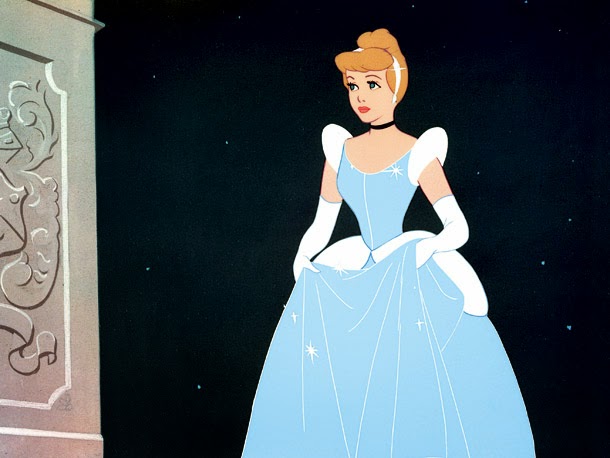“Her wings are cut and then she is blamed for not knowing how to fly” (Simone de Beauvoir, second sex, 1969).
From Childhood, women grow up fascinated by the timeless tale of the renowned character Cinderella, a story of a kind-hearted but passive princess rescued from adversity by a charming prince. But what if this fairy tale has left a deeper impact on our psyches than we realize?
The Cinderella complex, known as a woman’s dependence on men, incorporates waiting for
Prince Charming to come and save them from the problems in reality and fix their issues (Saha & Rahmath, 2019). The term coined by Colette Dowling believes that women live in a conflict between wanting independence and fearing it, which puts them in the stance where they long to be rescued. Despite being part of the world that celebrates independence and empowerment, why do we remain engulfed by these ingrained narratives?
This complex presents itself in professional contexts in ways that we never consciously acknowledge, known as the impostor syndrome – a pattern in which the individual is unsure about their achievements and has an undefeatable fear of being exposed as a fraud to the people around them, leading to self-doubt.
A recent study done by a student from Hanken School of Economics talks about how the Imposter experience affects the career development of high-achieving young women since Imposters struggle with planning their careers and executing their career aspirations. This is
partly a result of societal norms and gender stereotypes which these women had been surrounded by, already from a young age.
It also talks about how Clance et al. (1978) further highlighted, that women are socialized to believe that they are not expected to be successful in society and that obtaining power and achieving success is seen as inappropriate as a woman (Holm, 2021), making them feel
ill-equipped to deal with: promotions, responsibility, the chance to travel alone, without men to lead the way, and the chance to make friends on our own because freedom, we soon found out, frightens.
This makes the existing stereotypes about female capabilities more confirming in turn creating a self-reinforcing cycle filled with barriers and doubts. Many women though develop a mask known as a strong persona to deal with society’s expectations which can exhibit itself as a competent professional image, whereas The Shadow contains their underlying fears and perceived shortcomings, and the conflict between both of these aspects leads to impostor syndrome.
The archetype of Persona also contributes to the manifestation of this complex in the form of social role expectations that are placed upon women. Many women are conditioned from an early age to comply with roles such as a “good wife,” a “good daughter,” or a “good mother.”
However, it becomes extremely taxing when these predetermined roles prove to be insufficient, leaving us forced to contend with an identity that is more influenced by social expectations than by who we are.
The most common instance is the Great Mother archetype, which can cause internal tension in professional women, particularly when they are forced to choose between loving attributes (traditionally feminine) and strong leadership (traditionally masculine). This reflects the
Cinderella complex’s struggle between reliance and independence.
The media exacerbates this issue by promoting idealized tales reinforcing reliance and selflessness. We are surrounded by movies and TV shows where even if the storyline begins with showing women as empowered, it ultimately culminates in a romantic rescue around finding the one. Several Bollywood characters like Simran from Dilwale Dulhaniya le Jayenge, Zoya from Raanjhanaa, Preeti from Kabir Singh, and so on have succumbed to the romanticism of a male savior who transforms their lives and leads them toward a seemingly perfect happy ending. This, in turn, reaffirms the idea that there is an out for them—that they will be saved in some way, someday, and that a woman’s worth lies in fulfilling these roles and waiting for validation from
others rather than embracing their agency and autonomy.
But what makes this comical is the way these messages are packaged perfectly in the paper of choice and empowerment and tied with the bow of them prioritizing love and a secure future.
These messages taught to women since childhood and validated by the media lead them to
presume that it’s a feminine urge to want to be dependent on their respective partners. The urge to rely on someone—the need to be protected, cared for, and nourished since infancy. These want to persist until maturity, demanding satisfaction alongside our need for independence. This idea which makes women susceptible to the Cinderella Complex leads them to engage in unrealistic and unhealthy relationships (Saha & Rahmath, 2019). As we are taught growing up that the love and care we receive are conditional we start feeling mesmerized by this rescue fantasy that
promises unconditional love that we never encountered before on the prerequisite of competence and compliance. This leads to what is sometimes referred to as “the competence paradox”: women are urged to acquire new abilities and skills, but mostly as a way to win their salvation rather than as a means of achieving true autonomy.
This creates an idea of false individuation where women approach growth while paradoxically reinforcing dependency in the form of degrees and professional choices made only with the idea of external validation and as a way to prove worthiness. What we might need to pay attention to is the capacity that we hold for wholeness and integration of all our aspects. Additionally, the requirement of being able to confront the definition that we hold for self-worth and achievement while focusing on autonomy that is not falsely stated.
[The above article is authored by Ms. Sameeksha Razdan, counselling psychologist at Christ (Deemed to be University) Delhi NCR campus]

